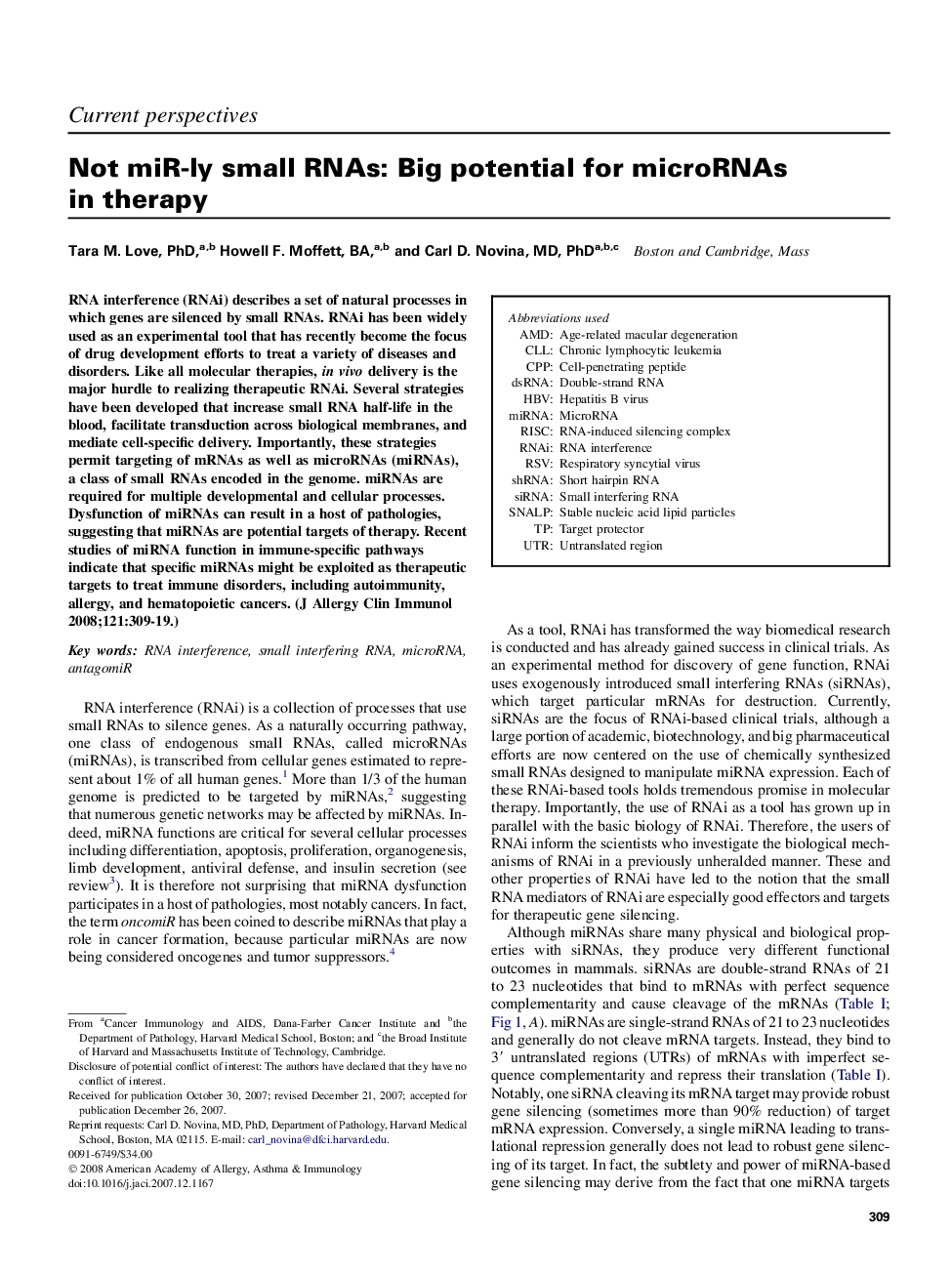| Article ID | Journal | Published Year | Pages | File Type |
|---|---|---|---|---|
| 3202748 | Journal of Allergy and Clinical Immunology | 2008 | 11 Pages |
RNA interference (RNAi) describes a set of natural processes in which genes are silenced by small RNAs. RNAi has been widely used as an experimental tool that has recently become the focus of drug development efforts to treat a variety of diseases and disorders. Like all molecular therapies, in vivo delivery is the major hurdle to realizing therapeutic RNAi. Several strategies have been developed that increase small RNA half-life in the blood, facilitate transduction across biological membranes, and mediate cell-specific delivery. Importantly, these strategies permit targeting of mRNAs as well as microRNAs (miRNAs), a class of small RNAs encoded in the genome. miRNAs are required for multiple developmental and cellular processes. Dysfunction of miRNAs can result in a host of pathologies, suggesting that miRNAs are potential targets of therapy. Recent studies of miRNA function in immune-specific pathways indicate that specific miRNAs might be exploited as therapeutic targets to treat immune disorders, including autoimmunity, allergy, and hematopoietic cancers.
